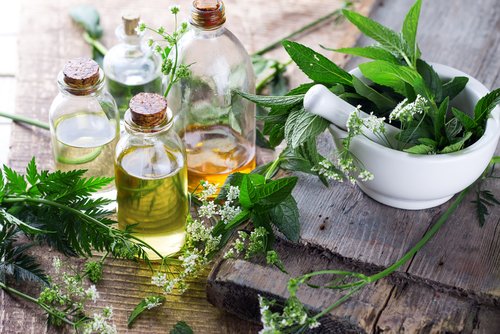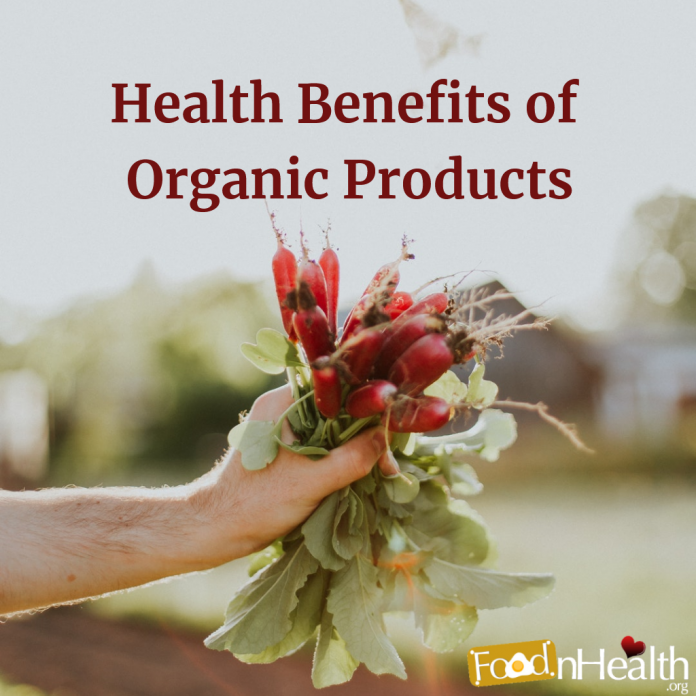The world has changed a lot. Before technology and industrialization occurred, people’s way of living has always been very simple. However, the existence of these two made society’s way of life more complicated. The shift to a fast-paced lifestyle somehow forced people to come up with poor food choices, thus resulting in numerous health risks. To address this, people have begun to advocate for a healthier lifestyle by switching to organic products.

The following are the health benefits of organic products:
-
Organic products promote all-natural healing
During the old days, people don’t even have pharmacies as we know it today since they simply relied on the power of plants during times of healing. People use herbs and other plants with medicinal properties to treat wounds and cure diseases. Today, people are trying to adopt this practice again by using organic essential oils.
Organic essential oils are not the same as traditional essential oils because the former are processed differently, usually through steam distillation or cold pressing. Most organic essential oils are extracted using a low temperature instead of a higher one to preserve the structural integrity of the active component.
Organic products are like improved versions of their natural source. That said, essential oils have a lot of benefits. Some examples are:
- Cures head and tummy aches
- Relaxes the mind and body
- Promotes better skin health
- Acts as a natural remedy for coughs and colds
-
Reduces exposure to harmful chemicals associated with agricultural farming
One of the advantages of consuming organic products is that it’s free from harmful chemicals farmers use to prevent insects and other pests from destroying their crops. Although the use of pesticides was employed a long time ago, there have been studies supporting the idea that the use of insecticides can have a negative effect on people who consume food or products that have these chemicals. Development of respiratory diseases and even risks of getting cancer have been associated with pesticides in food, where exposure to employees and consumers has led to many mass tort claims against these pesticide manufacturers.

Consuming organic fruits and vegetables will prevent you from being exposed to this health hazard. A different farming strategy is usually employed when growing crops without insecticides.
-
Promotes better health
Eating organic food is an excellent route to take if you want to be healthier. Most food you see in the market today has gone through food-preservation processes to prolong its shelf life. However, this can also mean that there are a lot of preservatives and substances that are used, which can be harmful if it gets accumulated in the body, thereby resulting in undesirable effects.
Also, some techniques in the food industry can reduce the amount of vitamins and minerals that you naturally get from food.
Organic products are usually preservative-free and don’t undergo many processes, so their health benefits remain intact. They are fortified with vitamins, and they contain a huge amount of essential minerals needed by your body to function properly.
If you’re trying to lose weight, consuming organic fruits and vegetables is recommended as it will deliver the necessary optimal nutrients and dietary fiber that will keep you full. It will also ensure that your metabolism will be efficient, which is essential during the weight-loss process so that fat will be burned easily.
-
Good for the environment
Traditional farming that uses chemical fertilizers and insecticides as part of their crop maintenance will create wastes that can contribute to different kinds of pollution, such as land, air, and water pollution. When these harmful elements accumulate in the environment, it poses a risk not just to people, but also to other inhabitants of the ecosystem.
Organic farming, which will yield raw materials for organic products, avoids the use of chemicals. Instead, organic farmers employ agricultural strategies that are environment-friendly. Some of these are:
- Biological management
- Crop rotation
- Vermiculture
- Use of biofertilizers
Organic products are not limited to food sources but can also apply to household items that we typically use in our everyday lives. Items such as soap, shampoo, and detergents contain chemicals that, when flushed down the water system, can also pollute both soil and water. Today, there are eco-friendly alternatives that use organic substances that work similarly to their chemical counterparts, minus the pollution, of course.
-
Consumption of non-GMO products
Genetically modified organisms or GMO products are the results of biotechnology for crop improvement. On the surface, this may sound like an attractive development in terms of food production, but GMO products are being disputed nowadays since the safety of consuming them has been deemed questionable. Some claim that GMO products can cause health risks in humans.
Organic food, on the other hand, is produced by natural forces in the environment, and the origin of the crops did not undergo any lab testing or scientific intervention. They are free from any material or genetic alteration. This will ensure that consumers will not be exposed to the health risks associated with the consumption of GMO products.
Final thoughts
Organic products are gaining popularity because of the benefits you can get from them. Consuming organic products as food sources can give you better health since they are packed with vitamins and minerals without any harmful chemicals. If you choose to use organic products externally or in your household, it can promote better skin health, and it will not generate toxic wastes that are harmful to the environment.


























